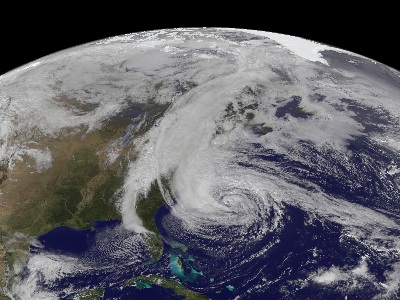Click on image for full size
Courtesy of NASA
Related links:
Spring is no Picnic on Uranus
News story originally written on February 14, 2000
Do you like spring? It might be your favorite season. But if you lived on Uranus, spring would not be so great. It's very cold and stormy. Not exactly great weather to play in!
The temperature can reach -300 ° F and there are huge hurricanes! Even worse, it won't be summer until the year 2007!
Scientists just learned about Uranus' climate with the help of the Hubble Space Telescope. And you thought it was cold during winter on Earth!










